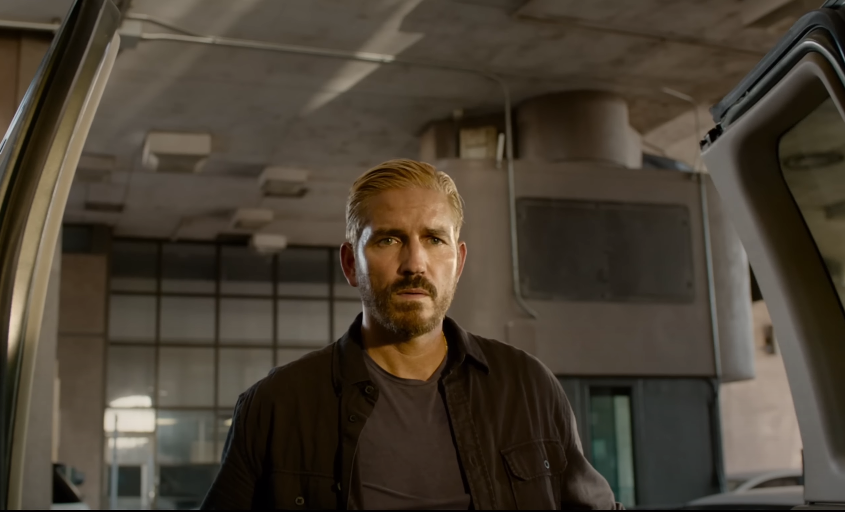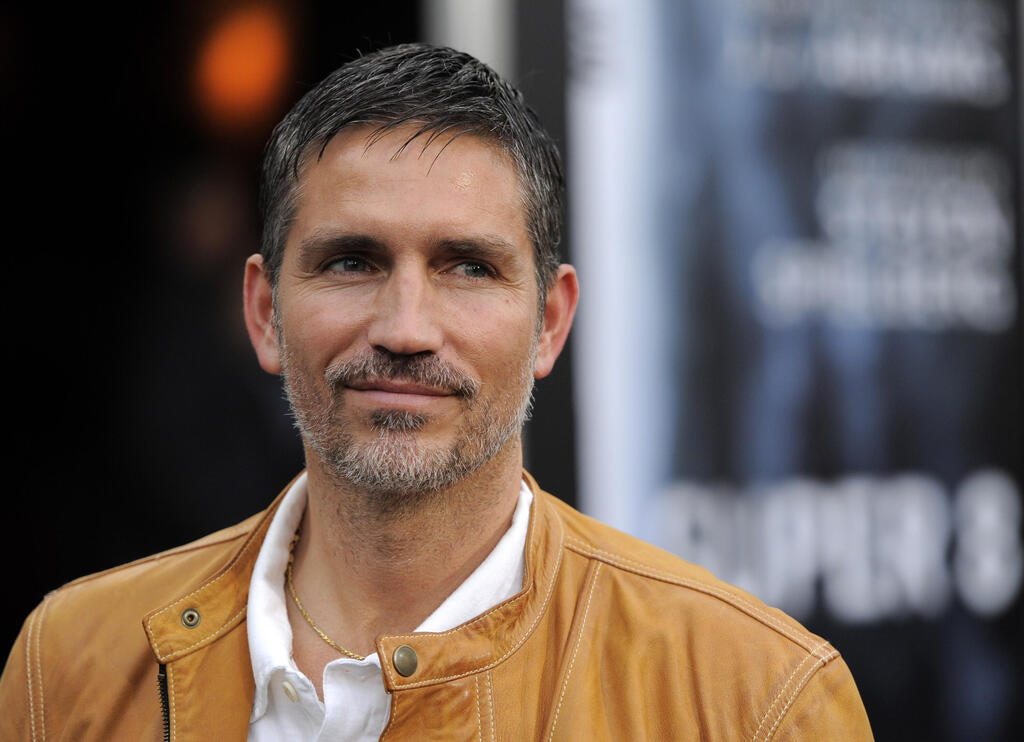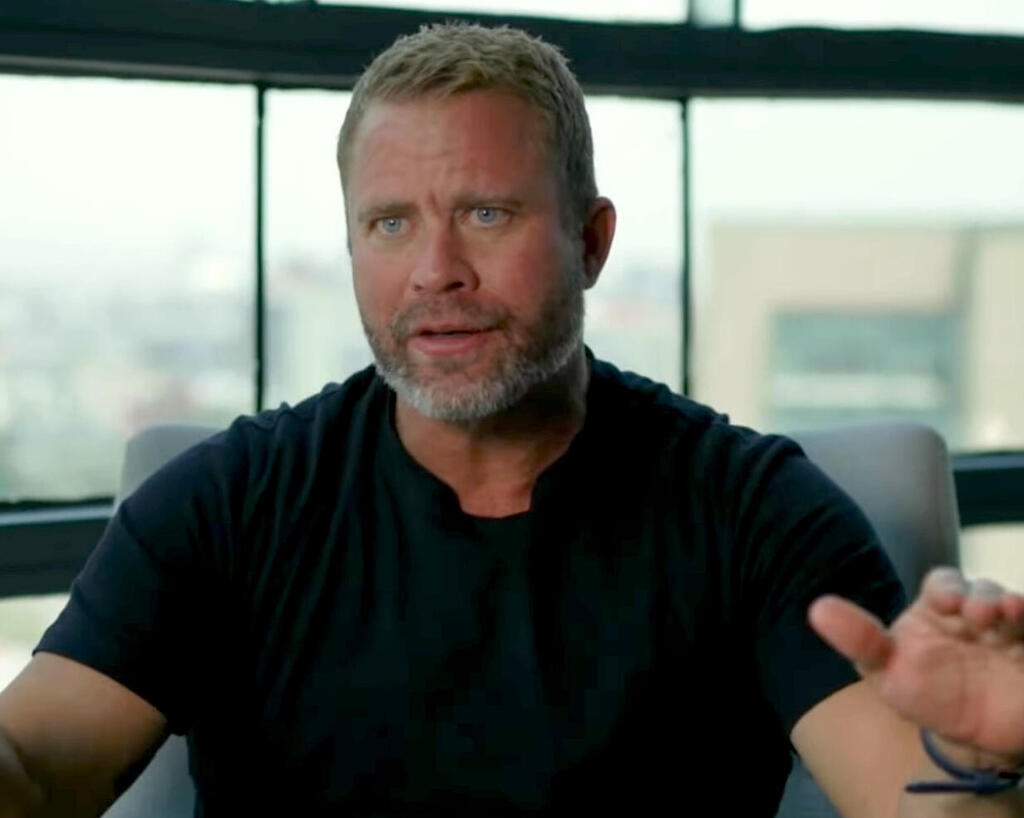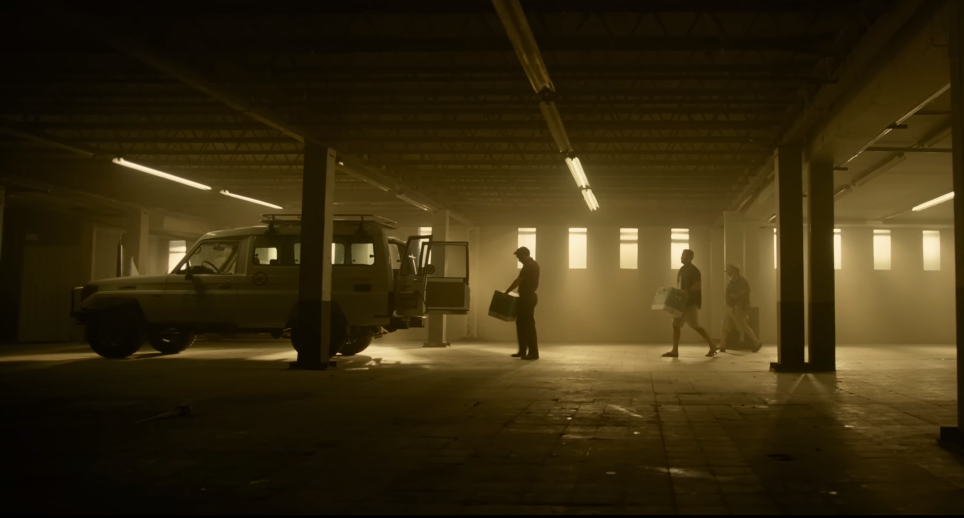Sound of Freedom - trailer
The Sound of Freedom, on the surface, appears to be one of those righteous Christian dramas that resonate with the conservative audience in the United States.
More stories:
Utah's Angel Studios, which distributes the movie nationwide, has only recently released a cinematic interpretation of Isaac's Binding titled His Only Son, with a narrative centered around a white, devout Mormon man, played by James Caviezel, known for his far-right views and alleged antisemitism, particularly after his role in Mel Gibson's controversial The Passion of the Christ.
Add to this mix, conspiracy theories drawing from QAnon narratives and The Protocols of the Elders of Zion, and you have a movie that's been shunned by most American filmmakers and their liberal audience. However, their primary concern stems from the fact that Sound of Freedom is raking in box office sales, while they struggle to find their audience.
The production cost of Sound of Freedom, directed by Mexican filmmaker Alejandro Monteverde, is estimated at just $15 million, a modest budget by any measure. Moreover, the film, completed in 2018, struggled to find distribution for years until the heads of Angel Studios agreed to undertake the task, but only with the support of a broad public crowdfunding campaign.
Despite these challenges, and lackluster to downright negative reviews leading up to its U.S. release, since hitting the screens on July 4th (American Independence Day), Sound of Freedom has grossed over $155 million.
For comparison, Indiana Jones and the Dial of Destiny, with a production budget of about $300 million and released just a week earlier, earned only about $13 million more for Disney in the domestic market.
How did a low-budget independent film, without significant production and marketing backing and buzz, seemingly come out of left field to become one of the major box office hits of 2023? The industry is trying to figure it out.
On the surface, nothing particularly unusual happened behind the scenes of Sound of Freedom, and certainly not in the storyline itself. It is based on the true story of Tim Ballard, a family man from Provo, the heart of the Mormon church in Utah, who was responsible for the arrest of numerous pedophiles during his tenure as an agent with the Department of Homeland Security. He retired to found an independent organization to combat child trafficking and has since served as an advisor to politicians in Washington, including Donald Trump.
The film follows its deeply mission-driven protagonist as he sheds his uniform to expose gangs that kidnap young victims from their families in South America for their nefarious ends.
What drives a wealthy married man and father of six to leave a comfortable life and embark on a perilous journey into the criminal worlds of Mexico and Colombia?
According to the film, his faith in God, a profound sense of Christian justice, and an unwavering commitment to enact it pushed him to act and save these endangered children, whom he referred to as "God's children."
While it's doubtful that any liberal critics of the movie support pedophilia or condone the activities of criminal organizations that perpetrate it, there has been concern among the liberal segment of the American public regarding the current political ties of the production, the original story and its characters' entanglements with conspiracy theories propagated by the far-right QAnon movement.
One of the rumors circulated in recent years on online forums associated with the movement alleges a secret pedophile cult operates under the auspices of the Democratic Party, whose members sexually exploit children for their pleasure.
Inspired by such rumors, 2016’s Pizzagate incident saw an armed man storming the Comet Ping Pong pizzeria in DC, aiming to rescue children supposedly imprisoned in the basement. To his surprise, he found neither children nor a basement.
Sound of Freedom and its numerous overlaps with QAnon themes are perceived as a targeted smear campaign against the liberal public in the United States. "The film is marketed to QAnon believers and this community embraces it, with the lead actor (Caviezel) being a significant part of that community," asserts researcher Mike Rothschild. He further notes that the QAnon movement and the conspiracy theories, as they are depicted in Sound of Freedom, draw from a long-standing antisemitic legacy.
“It plays on the same fears and conspiracy theories embraced by that community — that child trafficking is rampant and massively underreported, that the traffickers have connections to high-level people, and that only a few brave patriots are willing to stand up to it,” he told the Jewish Telegraphic Agency in an interview.
Perceived antisemitic undertones don't seem to particularly bother the 54-year-old Caviezel, who faced similar allegations with the controversial historical drama The Passion of the Christ directed by Mel Gibson, in which the American actor starred.
In an interview on Jordan Peterson's podcast, he revealed that producer Eduardo Verástegui handed him the script only after other actors invited to play the role refused to take part in the project.
"I went through this with Mel Gibson, when we did The Passion, my career was the last thing I thought of. What I thought about was the God I love… and that God that I love, he loves, and he deserved to be loved back.
He then remarked, “Schindler's List was a very powerful weapon, but it came 50 years too late. This film is now, this is exposing it now during that time. And I believe that is probably why it’s easier to get an actor to do a movie 50 years later. There’s no controversy. It’s over.”
Mystery tales about pedophilia are especially popular among right-wing conspiracy enthusiasts, yet even though they're unfounded, the protagonist of Sound of Freedom and the actor who portrays him believe in them.
In an interview on Steve Bannon's podcast, a former Trump adviser, Caviezel claimed that the child trafficking industry isn't necessarily for sexual exploitation, but rather to drive the trade of the hormone adrenochrome.
According to one of the favored conspiracy theories on the American right, it's a popular drug among the elite, serving as a sort of youth elixir for its users.
According to him, "the whole adrenochrome empire" is driving demand for trafficked children. "It's an elite drug that they've used for many years," he asserted, falsely claiming it is "10 times more potent than heroin" and "has some mystical qualities as far as making you look younger." The actor contended that their criminal industry relies on extracting the hormone from the blood of victims.
Caviezel spoke about the efforts of Ballard and the organization he founded named Operation Underground Railroad at a right-wing conference in Oklahoma in 2021, stating “he’s down there saving children as we speak, because they’re pulling kids out of the darkest recesses of hell right now, in … all kinds of places, uh, the adrenochroming of children.”
While Ballard has never formally identified with the QAnon movement, in an interview on Jordan Peterson's podcast, he revealed his work against an industry involved in organ harvesting from infants and the production of adrenochrome, predominantly in Africa, alongside a massive customer market in the U.S.
“It’s very real, this witch doctory. They take these children, they take their organs, they take their blood, they drink it, they take their genitalia of children and hang it over the rooftop of their businesses thinking that the dark gods will bless them,” he said.
So I might say something like that and then they connect it to something that a QAnon person says about a celebrity who must be doing this too but there's no evidence to back that."
Beyond the political hullabaloo, journalistic investigations into the organization Ballard founded in 2013 exposed problematic operations and portrayed his sting operations as, at best, ineffective or, at worst, as causing as much harm to the victims as to the criminals.
Separately, Ballard recently championed The Sound of Freedom and announced his departure from the organization ahead of its cinematic release. Adding to the controversy, both he and the film's producers now grapple with news that Fabian Márta, one of the financiers who facilitated the movie's production, was himself arrested in Missouri on child abduction charges.
According to Newsweek, Márta boasted about his contribution to the film on social media. "The Sound of Freedom movie tackles a very tough subject, and took extraordinary effort to bring it to movie theaters," he said in a Facebook post. "I'm proud to have been a small part of it. If you see the movie look for 'Fabian Márta and Family' at the very end of the credits."
Márta is one of many who contributed to the financing of the film's distribution. While the news of his arrest may be embarrassing, it's unlikely to harm the film's box office success or dampen the current enthusiasm of QAnon supporters who see this as an opportunity to break into the mainstream.
"Thanks to The Sound of Freedom's box office dominance and its challenge to Hollywood, many new eyes are turned toward us," was written on a website associated with the movement.
Politicians, of course, are not indifferent. Republican Senator Ted Cruz applauded the film, while his colleague Senator Tim Scott described it as a "powerful film." As expected, Donald Trump also joined the party, hosting a special screening at his New Jersey estate attended by Caviezel, Ballard and producer Verástegui.
The film's entanglement in political discourse represents another front in the culture war that currently tops the agenda for Republicans gearing up for the U.S. presidential elections next year.
This sentiment is underscored by a press release by the Trump campaign in support of The Sound of Freedom, claiming that, “Liberal media outlets like the New York Times, Los Angeles Times, and the Hollywood Reporter have refused to review the film, while publications like Rolling Stone, Washington Post, CNN, and the Guardian have trashed the film and mocked the millions of movie-goers who bought tickets to screenings.”
It's likely that The Sound of Freedom will appear in right-wing politicians' talking points as evidence that the American public rejects Hollywood's progressive narratives, preferring religious and conservative films. However, this claim is somewhat challenged by the unprecedented box office success of Barbie, which those same conservative circles label as "woke."
Culture war aside, the entire American film industry is reeling from The Sound of Freedom, and not due to the political and ideological aspects behind the film. Producing Christian dramas is nothing new and has a loyal audience, ensuring a decent return on a modest investment.
However, The Sound of Freedom isn't a typical Christian drama, and its box office success indicates a wide-ranging appeal that spans across various demographics. On the surface, it doesn't offer much. It's a straightforward thriller, not overly sophisticated. The protagonist operates from a place of righteousness, morality and faith in God. He has no dark sides; his character is as pure as snow (as is his skin color, much to the chagrin of progressive critics). His character lacks depth, as do the villainous and unsightly adversaries he seeks to bring to justice. His only moment of hesitation before embarking on a rescue mission in South America concerns leaving his wife (Mira Sorvino) and children.
The surprising box office success of The Sound of Freedom is a stark deviation from the current trends in the film industry, especially concerning its independent sector, which is grappling with a terminal crisis of disinterest and a lack of audience.
As of now, The Sound of Freedom is the only independent film not produced by one of Hollywood's major studios to make the top 40 highest-grossing movies of 2023. It currently ranks 11th, following Super Mario, Barbie, Guardians of the Galaxy 3, John Wick 4, and Indiana Jones and the Dial of Destiny — blockbusters produced with millions of dollars to earn many more millions.
This is the ultimate dream for any independent filmmaker in the U.S. today, and it has materialized in the case of this unsophisticated thriller that lacks artistic inspiration and didn't even boast major star power (no, Caviezel doesn't quite qualify).
Independent filmmakers in the U.S. who are committed to creating original, intricate and artistic works, and are navigating their way through the challenging industry, view the commercial success of The Sound of Freedom with astonishment and envy, with some feeling disheartened.
They work tirelessly to write, produce, direct and secure funding for their films. They bring their art to life but often struggle to introduce it to broader audiences, and certainly don't always profit from it. Currently, independent films find it difficult to convince commercial distributors to take a risk and screen them in theaters.
Yet, here comes this unimpressive drama, breaking box office records with the quirky Angel Studios from Utah, moved through crowdfunding from donors like Fabian Márta, and with the support of controversial figures like Mel Gibson, whose notorious The Passion of the Christ remains the most successful independent film of all time.
For many, The Sound of Freedom is just another blow in a series of setbacks faced by American filmmakers. They pour their souls into their artistic vision, yet it often goes unnoticed.
"freedom" - Google News
August 12, 2023 at 05:38PM
https://ift.tt/ehKi7Fo
The Sound of Freedom: A conspiracy theory that turned into a box office hit? - Ynetnews
"freedom" - Google News
https://ift.tt/eDG0F3w
https://ift.tt/pCKRPwn
Bagikan Berita Ini























0 Response to "The Sound of Freedom: A conspiracy theory that turned into a box office hit? - Ynetnews"
Post a Comment